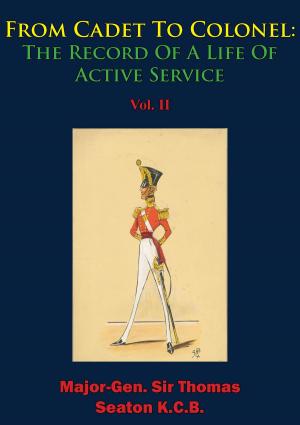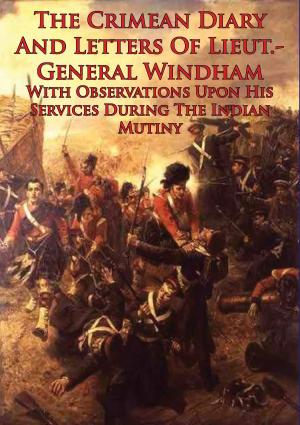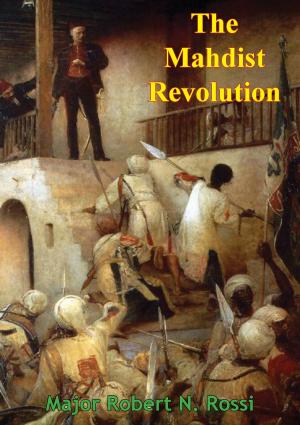A History Of The British Army – Vol. XI – (1815-1838)
Nonfiction, History, Ireland, Military, Other, British| Author: | Hon. Sir John William Fortescue | ISBN: | 9781782891383 |
| Publisher: | Normanby Press | Publication: | June 13, 2014 |
| Imprint: | Normanby Press | Language: | English |
| Author: | Hon. Sir John William Fortescue |
| ISBN: | 9781782891383 |
| Publisher: | Normanby Press |
| Publication: | June 13, 2014 |
| Imprint: | Normanby Press |
| Language: | English |
Sir John Fortescue holds a pre-eminent place amongst British military historians, his enduring fame and legacy resting mainly on his life’s work “The History of the British Army”, issued in 20 volumes, which took him some 30 years to complete. In scope and breadth it is such that no modern scholar has attempted to cover such a large and diverse subject in its entirety; but Sir John did so and with aplomb, leading to a readable and comprehensive study.
According to Professor Emeritus of Military History at King’s College, Brian Bond, the work was “the product of indefatigable research in original documents, a determination to present a clear, accurate, and readable narrative of military operations, and a close personal knowledge of the battlefields, which enabled him to elucidate his account with excellent maps. Most important, however, was his motivation: namely, a lifelong affection for the old, long-service, pre-Cardwell army, the spirit of the regiments of which it largely consisted, and the value of its traditions to the nation. An important part of his task was to distil and inculcate these soldierly virtues which, in his conservative view, contrasted sharply with the unedifying character of politicians who habitually meddled in military matters.” ODNB.
This eleventh volume covers the period from 1815-1838, as the tumult of the Napoleonic Wars finally came to a close, two major themes emerged within and without the British Army, that of reform and Imperial expansion.Written as always with superb detail and authority, Sir John details the expansion the new age of the British Empire and its extension into Nepal and their alliance with the Ghurka people, an alliance that survives to this day, and also into parts of India previously untouched and Africa via the Pindari and Ashanti campaigns.
A MUST READ for any military enthusiast.
Sir John Fortescue holds a pre-eminent place amongst British military historians, his enduring fame and legacy resting mainly on his life’s work “The History of the British Army”, issued in 20 volumes, which took him some 30 years to complete. In scope and breadth it is such that no modern scholar has attempted to cover such a large and diverse subject in its entirety; but Sir John did so and with aplomb, leading to a readable and comprehensive study.
According to Professor Emeritus of Military History at King’s College, Brian Bond, the work was “the product of indefatigable research in original documents, a determination to present a clear, accurate, and readable narrative of military operations, and a close personal knowledge of the battlefields, which enabled him to elucidate his account with excellent maps. Most important, however, was his motivation: namely, a lifelong affection for the old, long-service, pre-Cardwell army, the spirit of the regiments of which it largely consisted, and the value of its traditions to the nation. An important part of his task was to distil and inculcate these soldierly virtues which, in his conservative view, contrasted sharply with the unedifying character of politicians who habitually meddled in military matters.” ODNB.
This eleventh volume covers the period from 1815-1838, as the tumult of the Napoleonic Wars finally came to a close, two major themes emerged within and without the British Army, that of reform and Imperial expansion.Written as always with superb detail and authority, Sir John details the expansion the new age of the British Empire and its extension into Nepal and their alliance with the Ghurka people, an alliance that survives to this day, and also into parts of India previously untouched and Africa via the Pindari and Ashanti campaigns.
A MUST READ for any military enthusiast.


![Cover of the book U. S. Marines In Battle - Al-Khafji 28 January-1 February 1991 Operation Desert Storm [Illustrated Edition] by Hon. Sir John William Fortescue](https://www.kuoky.com/images/2014/august/300x300/9781782893370-Nsey_300x.jpg)
![Cover of the book Seventy-One Years Of A Guardsman’s Life [Illustrated Edition] by Hon. Sir John William Fortescue](https://www.kuoky.com/images/2014/august/300x300/9781782899204-3Spp_300x.jpg)



![Cover of the book Vietnam Studies - The Development And Training Of The South Vietnamese Army, 1950-1972 [Illustrated Edition] by Hon. Sir John William Fortescue](https://www.kuoky.com/images/2014/august/300x300/9781782893707-nxcO_300x.jpg)
![Cover of the book U.S. Marine Operations In Korea 1950-1953: Volume V - Operations In West Korea [Illustrated Edition] by Hon. Sir John William Fortescue](https://www.kuoky.com/images/2015/november/300x300/9781786254306-vY0V_300x.jpg)



![Cover of the book The Relief of Chitral [Illustrated Edition] by Hon. Sir John William Fortescue](https://www.kuoky.com/images/2016/july/300x300/9781786259592-Fw2t_300x.jpg)
![Cover of the book A Lady’s Escape From Gwalior [Illustrated Edition] by Hon. Sir John William Fortescue](https://www.kuoky.com/images/2014/june/300x300/9781782892274-491G_300x.jpg)

